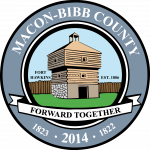The Macon-Bibb County Emergency Management Agency (EMA) is currently working with the Middle Georgia Regional Commission and community partners on its Pre-Disaster Mitigation Plan, and a second public forum will be held July 30, 2015, at 1:00 p.m. in the Government Center Commission Chambers (700 Poplar Street) to let people know about the plan and seek their feedback.
At this meeting we will discuss the important buildings and facilities in Macon-Bibb and further define the types of disasters that can impact us. The current list of these important buildings and disaster definitions can be found at the link below.
The Pre-Disaster Mitigation Plan helps Macon-Bibb identify what hazards the community is susceptible to, where its vulnerabilities are, and what needs to be done to stop or lessen the impact from them. The Federal Emergency Management Agency (FEMA) requires it be updated every five years in order for communities to be eligible for post-disaster financial reimbursement.
The current plan (which can be viewed by clicking here) allowed EMA to identify homes that were continually flooding, triggering a funding source from the Georgia Emergency Management Agency and FEMA to purchase property and convert them to greenspace. The updated Plan should be ready in the Spring of 2016.
“As we learned at our week-long training at FEMA’s Emergency Management Institute, preparation for, response to, and recovery from a disaster requires all of our organizations and neighborhoods working together to protect life and property,” says EMA Director Donald Druitt. “By holding these forums, we can make sure our plans and procedures are as updated as possible so we are better prepared when the next disaster strikes.”
A kickoff meeting has already been held with Macon-Bibb County leaders, first responders, and other disaster response partners. At the first public forum, residents and business owners were able to provide first-hand experience about how their neighborhoods are affected by issues like severe weather. For example, EMA and first responders will want to know which streets flood regularly after heavy rains because that will help them determine where they can drive after a storm and where people may need to be rescued from.

